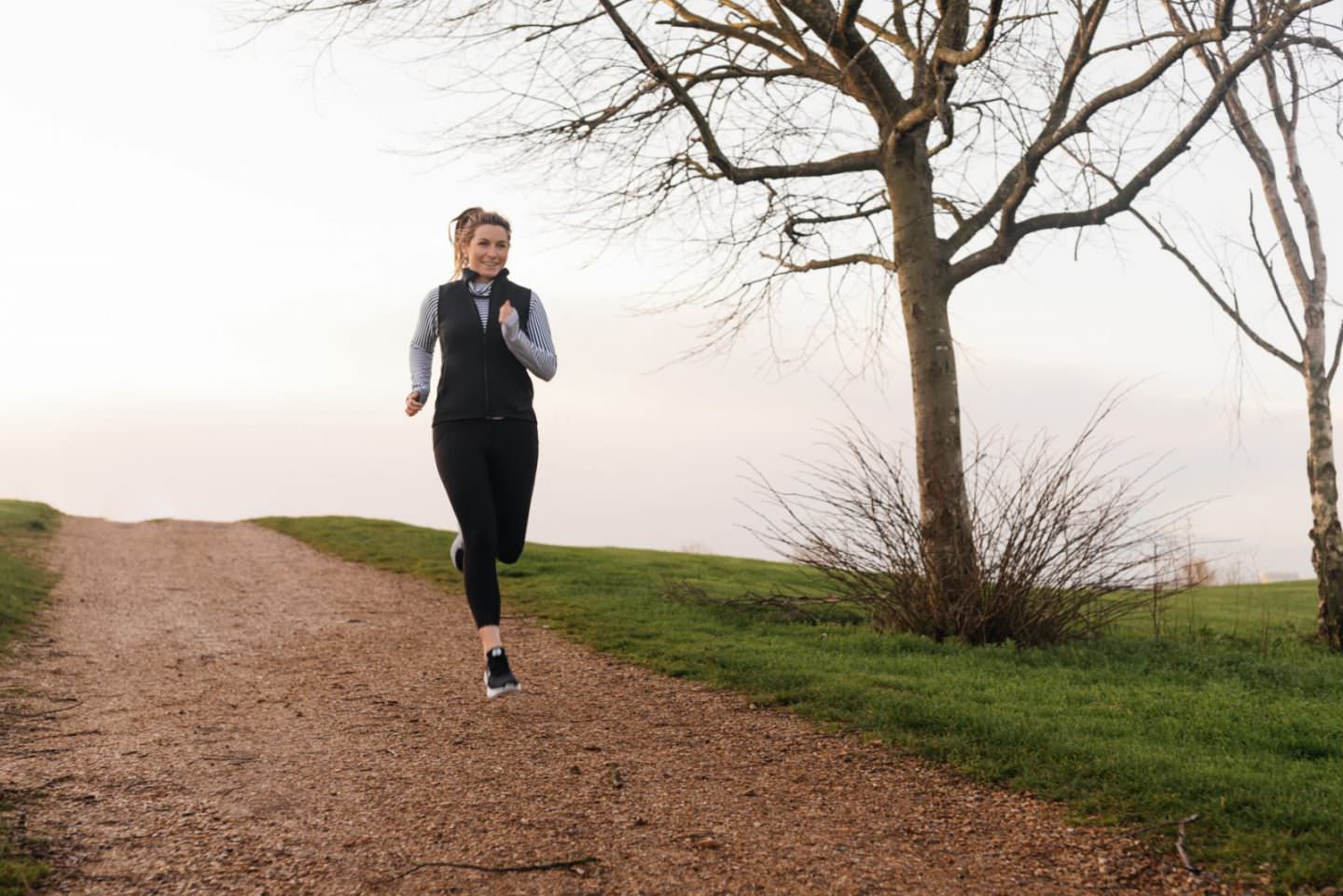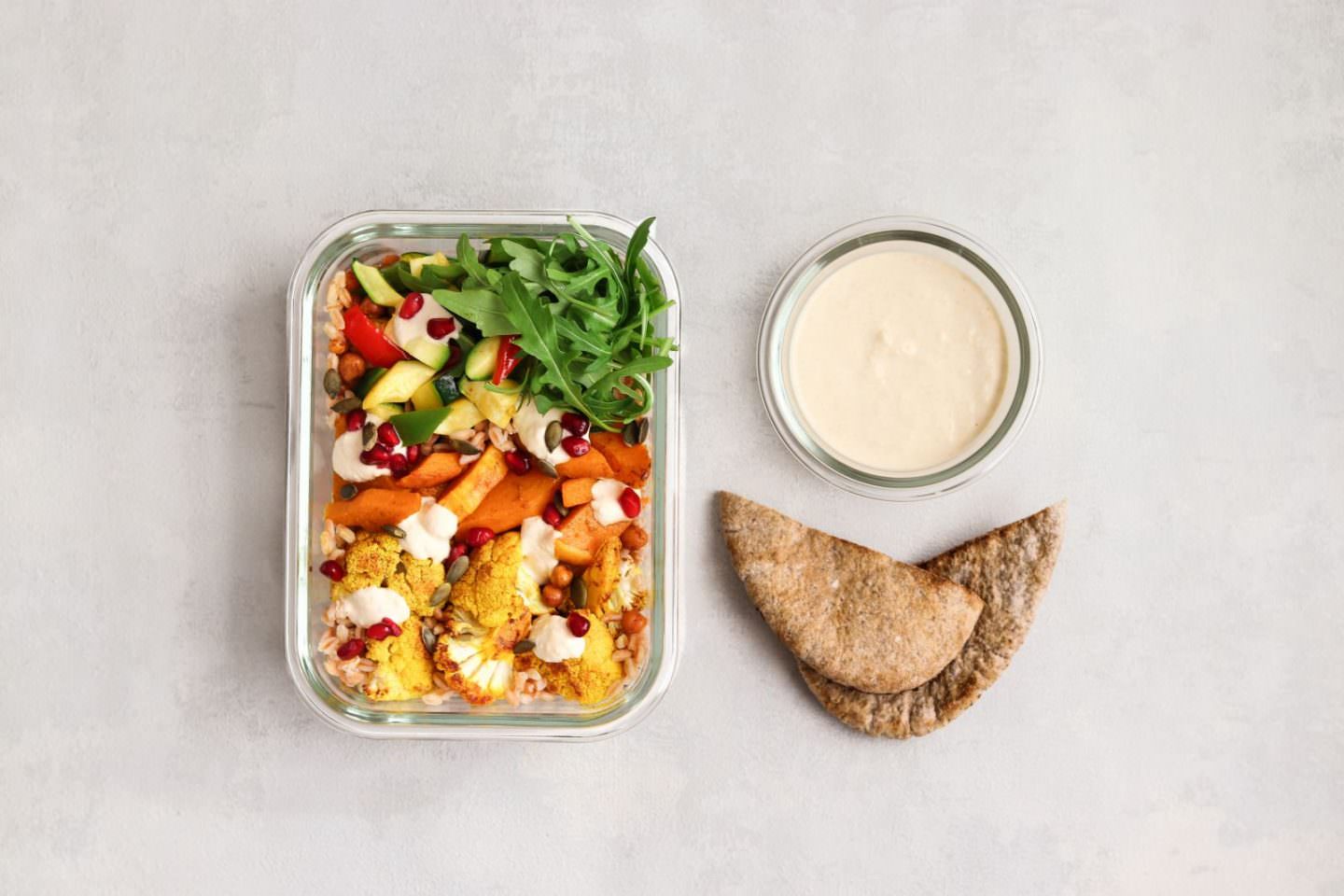Listen here, or subscribe and download on Apple podcasts or Spotify (or wherever you listen to your fave podcasts). I would also so appreciate it if you could leave a rating and review if you liked it!
This week’s podcast episode is with Kaitlin Colucci, a Registered Dietitian, a gut health and FODMAP specialist, we talk about how runner’s can improve their gut health, the impact of our gut on overall health and how much fibre we really need in our diets (and pre race!).
What is the gut?
When we are talking about the gut, we are talking about literally everything from your mouth all the way through to exit at the other end. So your mouth, oesophagus, stomach, small intestine, large intestine then that bit at the end.
Its main functions are to absorb nutrients from the food we eat and get rid of solid waste from the body. Currently, the trendy topic when discussing our ‘gut’ is to talk about the gut bacteria which live inside our gut, called the microbiota. The microbiota can help aid digestion, and support a healthy immune system. Plus we now know there is a link between stress and anxiety via something called gut-brain axis which is a path way between the gut and the brain.
Literally, when you have a gut feeling about something, it is actually true! Your gut and your brain are constantly communicating with each other. Research is now looking at whether this gut microbiota can have control over organs in our body. So not just our brain, but also possibly our skin, our kidneys – it’s a really interesting topic.
How does our gut health impact mental health? Is running good for our gut health?
There are fascinating links between microbiota and depression, as well as cardiovascular fitness and the gut microbiome. It is incredible that it can affect us so much, but also that our outside activities, such as stress and fitness levels and not just what we are eating, can also impact the gut microbiome.
When you talk about gut health and depression, there was a really interesting study which took a group of people who were clinically depressed. They randomised half of those people to have counselling therapy. The other half had a Mediterranean diet – rich in plant based foods, so fruits and vegetables, nuts and seeds, legumes, etc. What they found was that the group on the Mediterranean diet had a greater remission rate in terms of their depression scores compared to the group who had the counselling therapy. This helps to show the impact that a healthy diet can have on our overall mental health.
There was another study involving sufferers with IBS. They put half of them on what we call the low FODMAP diet (supported by specialist dieticians), which is one we know can significantly reduce symptoms in IBS patients. The other half of the group were put on a 12 week yoga programme. What was incredible was the fact that both groups had significant improvements in their IBS symptoms. The FODMAP diet is very restrictive and quite difficult to stick to, knowing there’s an alternative option for people to try, that FODMAP is not the last resort.
You play about with diet as much as you like, but unless you really address the underlying lifestyle factors, you are always going to be sensitive to the food you are eating because you may have extra stress or anxiety in your life. That connection between the gut and the brain – they are communicating. So by doing all these more mindfulness activities such as yoga and running or indeed any exercise, using that as both a stress reliever and overall health! It doesn’t really matter what type of workout you do, the important thing is to sustain the exercise. It’s no good thinking, ‘oh I feel a bit down this week’. So you go on a run for five days that week, but then do nothing for the next three weeks. It is better to go twice a week, every week, to improve the gut bacteria and the diversity of your gut microbiome.
Why is gut health so important for overall health?
When we talk about good gut health, there is no universal definition.
You could say it’s important to have good gut health because you will then have an absence of any other gut symptoms such as bloating, farting or abdominal pain. No one should have to put up with a lot of those symptoms. It’s really important to address your diet and your lifestyle factors to try and give your gut bacteria what they need.
It’s important, if you’ve been experiencing these symptoms for a while, it’s good to get some support or advice from your GP (rather than Dr Google) so they can rule out anything more sinister which might be going on.
Why is fibre so important and how much should we be aiming for each day or week?
When we talk about dietary fibre, it’s important to remember it is a carbohydrate!
It comes from all our plant based food – fruit, veg, beans, pulses, lentils, legumes, whole grain carbohydrates such as brown rice and brown pasta. Fibre is basically what forms the bulk of our poop. We need to make sure we are getting enough fibre so that we can pass bowel motions regularly, so that we are not constipated or having diarrhea. U.K. guidelines suggest we should be aiming for 30 grams of fibre everyday.
Soluble fibre – what I call the water loving fibre, is only partially broken down and can soften your poop. Soluble fibre comes from foods like whole grain oats, linseed, flax seeds and beans , pulses and lentils. Insoluble fibre is not broken down and forms the bulk of your poo, making it very hard.
Insoluble fibre comes from your nuts and seeds, whole grains and the skins of your fruits and vegetables. It’s important to have a balance of both to achieve that perfect stool, and have a good bowel movement.
What does a gram of fibre look like?
That’s hard, to measure out one gram. So, over the course of a week, try to aim for 30 different types of plant based foods.
That sounds like a lot and quite hard, but if you are aiming for your 5 portions of fruit and veg per day, plus a couple of whole grains, that’s not actually that difficult. Aim for variety- remember that your herbs and spices like paprika, turmeric, cumin – whatever it might be that you chuck into your cooking to add additional flavour and colour. Keep tins of beans and lentils in your cupboard to add that colour and variety – that’s why ‘eating the rainbow’ is so important!
Can you eat too much fibre?
Yes. A diet that is very rich in fibre, in particular a type of fibre which can harden your poo, then you can get quite constipated. Similarly, too much fibre can trigger looser bowel motions and more diarrhea. That is when it would be good to speak to a Dietitian or Nutritionist to balance the right types of fibre in your diet.
If you suddenly increase your fibre intake, say by taking on the challenge of Veganuary, you are bound to get lots of bloating, some abdominal pain and have some or all those gut associated symptoms. If you are looking to move to a vegan style diet, or increase the fibre in your diet, we do recommend a gradual change. The other important thing to remember is always to drink plenty of fluid with your fibre, because if you are not having the fluid with your fibre, then that fibre has nothing to absorb in your gut, and will just become very very hard, and will probably constipate you even more.
How much fibre should we be eating before a run or a workout? Should we be mindful of the timings? Or should we work on the basis that running is part of our lives and we still aim for the 30 grams per day?
There is some evidence that shows that avoiding particular foods for 24/48 hours before the race, specifically foods which ferment more in our large intestine – called the higher FODMAP foods – may help reduce or help gut symptoms during the event. For example beans, pulses, cauliflower, brussel sprouts, even lactose or gluten in some people.
Rather than cutting them out of your diet completely though (because doing so could cause deficiencies) you could easily have your cabbage, sprouts and cauliflower etc at the start of the week and have more easily digestible food closer to the event. It’s important to practice – work out what works for your body on your long runs!
You have to remember that the gastrointestinal Tract and our gut, is a muscle which needs training. We need to train the muscle how to function during races, especially during endurance sport.
After the first ten minutes of exercise, the blood flow to gut reduces by 20%; 60 minutes in, the blood flow is reduced by 80%. You can see why, when you are trying to eat something during an endurance race, that blood flow is not there to help support the digestion, and so you can see why you would start malabsorbing things and getting gut associated symptoms.
Is there anything we can try to do to avoid Runners Trots?
It might be an idea to avoid or restrict the higher FODMAP foods before a race and make sure you are well hydrated before an event. There is some research which shows that if you begin a race dehydrated, this can increase gastric emptying which means you pass things through quicker, leading to things like diarrhea or looser bowel motions. And it’s not just a race. You can have the same issues starting your long run dehydrated. So make sure you drink well the day before and morning of a long run too.
Are probiotics good for runners? Should we all be taking them?
When talking about probiotics, we are talking about probiotic capsules or drinks which contain beneficial bacteria we can take directly into our gut. For the normal healthy person, there is no need really to take an additional probiotic. The evidence for probiotics at the moment is a bit mixed. The most convincing evidence is in the prevention of antibiotic associated diarrhea, and in the treatment of traveler’s diarrhea.
If you are looking to take a probiotic, it is important to choose the right strain of probiotic for your particular symptom. There is the US Probiotic Guide which is a huge database looking at what’s available for what symptoms and how long it should be taken. Dietitians check against what’s available here, and consider options to maybe suggest to a client. But even then, there is no guarantee of success. Most of the anecdotal evidence seems to come from food that contain live beneficial bacteria such as fermented foods like kefir, kombucha, kimchi, sauerkraut. I tend to say, if you enjoy eating those kinds of foods, or try them. If you feel they help, then, great. But if you don’t like them, then don’t force yourself!
If we are buying kombucha here in the U.K. , is there something we should be looking for as the ones I’ve seen tend to have a high sugar content?
Just check the labels – anything with less than 5g of sugar per 100 ml would be classed as low sugar.
Do probiotics and the live culture foods help with bloating? What can people do if they are feeling bloated to try and help?
When we talk about bloating, it is important to remember that a little bit of bloating is actually a good thing. Excessive, all day, painful bloating is not so nice and is the time perhaps to seek more advice from your GP or doctor, who can run more tests and perhaps refer you to a dietitian. Everyone is different. What can cause bloating ranges from simple things such as swallowing air from excess chewing gum, and drinking through straws all the time.
When we are talking about bloating in terms of gut health, we are typically talking about the fermentation of food in the large intestine. We all produce gas, but some of us are more sensitive to that gas production. Bloating becomes an issue when we are not passing that gas through.
Women tend to be slightly more susceptible to bloating because we have a slightly weaker abdominal wall to try and hold that gas in, and for those who follow a plant based diet, bloating is a bit more of a reality than for others, because of the increased fibre. Foods that might trigger bloating, we are thinking of cruciferous vegetables like cauliflower and sprouts. There is evidence that if you continue to expose yourself slowly and steadily to things like pulses, you will become less gassy over time. Maybe try to eat a new food each week
Top tip for gut health?
Every time you go food shopping, try to buy one different fruit, vegetable, grain, bean or pulse you haven’t tried before. Try to pick something slightly different or new to your normal items. If you are buying fresh, rather than tinned or frozen, try to buy in season as the vitamins and minerals will be at their prime.
You can subscribe to my new podcast – COOK EAT RUN on Apple Podcast, Spotify or anywhere you listen to your podcasts. Check out last week’s episode on Post-Run Nutrition.




Great post! I’ve had shall we say, lower GI issues, for a while. It seems to be getting worse. When I go for a long tun I always carry paper towels or napkins. I’m not worried about comfort as much as function.
I also look for Dunkin Donuts and convenience stores I can use.
I avoid high fiber food before a race and the morning of a long run. I’m also very good with my hydration.
I’m trying a multi probiotic yogurt/kefir yogurt making kit. So far my gut results are mixed at best.
My doctor said at least it reduces my chance of getting colon cancer and didn’t take much note of my issue.
I’ll be studying the probiotics at the link you provided.
Andy
I have really struggled with gut issues running and I’ve tried all sorts of different things. I’m almost resigned to the fact running will always cause me a problem.
I know some triggers that will make the problem come on in a 5k but half marathon plus milage I have no chance. I’ve tried FODMAPS, immodium and even coediene.
Luckily my running buddy makes light of it and supports me ?